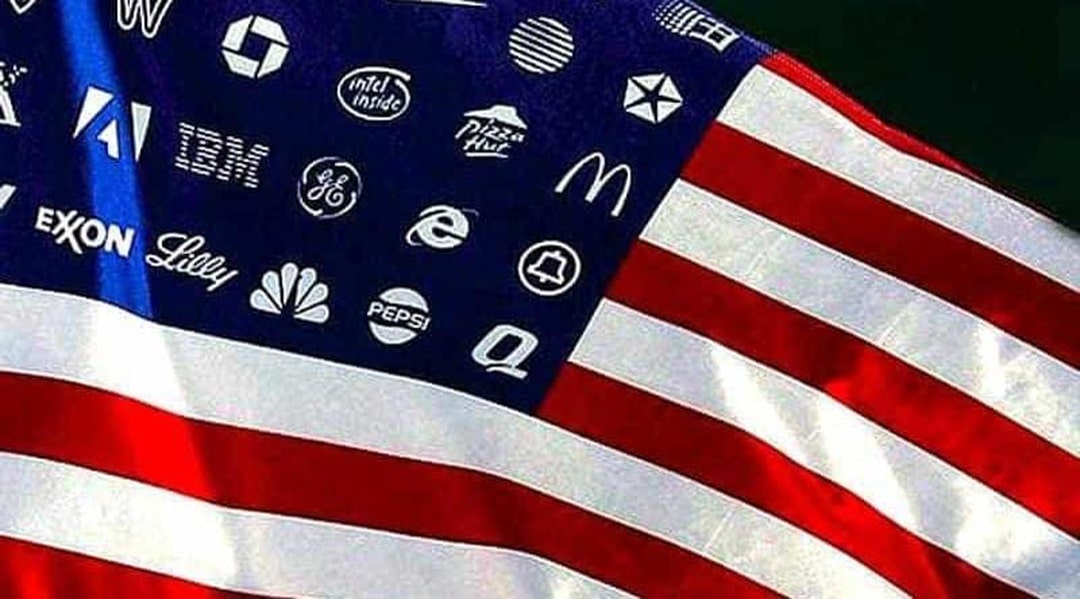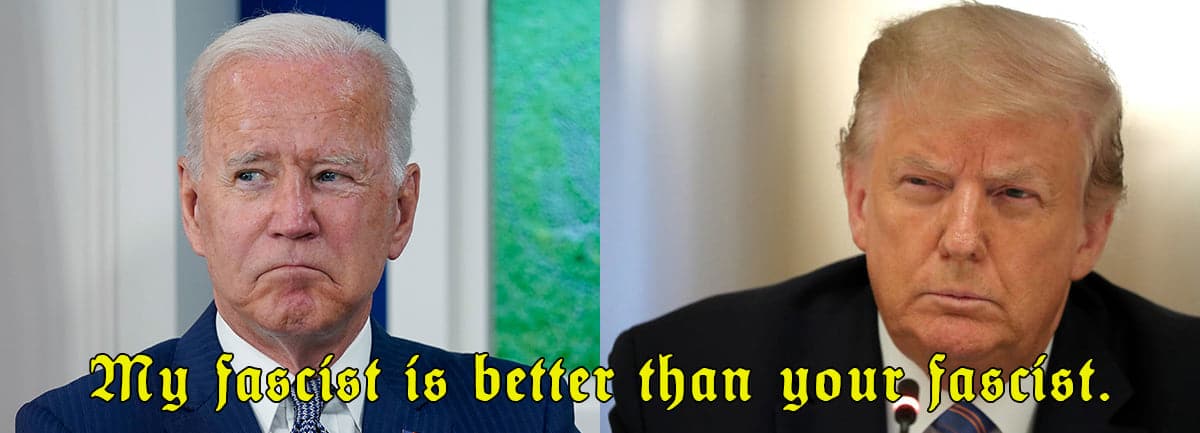

Will the American Oligarchy Accept Limits or Choose World War III?
by | Apr 14, 2024
I recently came across this piece from the Century Foundation titled “A Bolder American Foreign Policy Means More Values and Less War.” Its central argument is that the US must “recenter values” like “multilateralism and human rights that are core to its identity.”
The Century Foundation calls itself a “a progressive, independent think tank,” and this particular piece appears to mean well but is just as disconnected from reality than all the neocon think tanks’ war mongering policy papers saying Washington will prevail as it takes on Russia, China, Iran, and whoever else it feels like.
The Century Foundation authors possess a Hollywoodized idea of America that isn’t a land filled with brutal class struggle but virtue, which flow out into its foreign policy that stands for international humanitarian or human rights law. I think anyone with a basic understanding of current events or recent history knows how ridiculous this is, and yet it is repeated ad nauseam by every purported think tank. I suppose this is a classic example of Upton Sinclair’s saying that “It is difficult to get a man to understand something, when his salary depends on his not understanding it,” but I think the Century Foundation is onto something with its focus on values. It’s just that it has it backwards. The problem is that values are what has the US on the brink of starting World War III in multiple locations.
So what are the core values that do have it such a position – and whose are they?
I think the story of former US President Herbert Hoover is instructive. He had interests in mines in Russia until they were seized by the Bolsheviks. [1] Hoover never forgot about it and remained terrified of Communists for the rest of his life – and for good reason considering how much he stood to lose.
Though Hoover got booted out of office in 1932, he played a central role in organizing capitalists to counter worker organization both in the US and abroad. His legacy lives on at Stanford’s neocon Hoover Institution. Throughout his life, he remained a major admirer of pre-Soviet Russia: “At the top was a Russian noble family and at the bottom 100,000 peasants and workers with nobody much in between but the priesthood and the overseers.”
That pretty much sums up the capitalist class’ enduring vision not just for Russia, but everywhere. Ownership of Russian mines or Opium Wars in China might not factor much into my or your everyday life, but you can bet it’s an important part of American ruling class ideology. Whose values? The dominant value at play there is a belief that as Western capitalists they have a right and a duty to exploit and profit off of every corner of the globe. Just like capital must dominate labor, it must expand and find new sources of revenue. If governments in Russia and China impede that progress, they must be destroyed.
Rather than bromides like more American “values,” the following are some questions or thought exercises for think tanks to consider – whether they want to win another war or maybe even quit starting so many of them.
Can You Practice Realpolitik with Gangsters?
The US is a market state that is dominated by and run for transnational capital. Its foreign policy and the military are a tool of the American oligarchy. Therefore, any serious policy discussion needs to deal with the fact that national interests as they’re expressed today are not in any real sense national but representative of the interests of a small cohort of the super wealthy.
When US officials go on about spreading “freedom,” they’re not lying. It’s just their idea of freedom is a state devoted to high profits – free from the political whims of local populations that could degrade an investment’s expected return.
Let’s remember there likely wouldn’t be any problem with Russia had Putin not put an end to the 1990s shock therapy administered by the Western finance capitalists who were making a killing by pillaging Russian resources. Like Bert Hoover, they’re haunted by that opportunity snatched away from them, and they’ve been trying to get it back for a quarter century now.
The question is will American capital ever voluntarily give up? Will it ever say “okay, we’re satisfied with what we’ve got here, you do your thing in your sphere of influence”?
It’s not like Moscow and Beijing haven’t tried. Russia for example floated the idea of joining NATO or working out some other security arrangement. For decades after the end of the USSR, Russia tried to be accepted into the West’s club to no avail.
China, too, constantly repeats the refrain that the world is big enough for both Beijing and Washington. It invited the US to join it in its Belt and Road Initiative. The US could have helped steer projects that would have benefited both countries. While such cooperation between the two big powers wouldn’t be a panacea for all the world’s problems, it would likely mean a lot better spot than current one. Instead the US wanted the whole pie and instead we got the TPP, sanctions, export bans, a new Cold War, a spy balloon scandal, the disastrous effort to weaken Russia before taking on China, the successful effort to sever Europe from Eurasia to disastrous effect for Europe, and the desire to see a Ukraine sequel in Taiwan and/or the South China Sea.
There is a lot of confusion over why the West keeps escalating in a losing effort. Why, for example, are Western governments going around begging for shells to send Ukraine rather than accepting the L? The desperation seems to stem from the creeping realization that their system is coming undone. The entire post-WWII elite American mindset is built on the foundation of worldwide profit expansion via silicon and fire, and if they throw everything at Russia and lose, well a whole new domino theory could come into play – one where parasitic Western finance capital is driven back. (Granted it might in most cases be replaced by a more local form, but it’s nonetheless frightening for the Western honchos.) Just look at what’s happening to France in Françafrique! And the US in the Middle East!
The fact that the West can no longer even manufacture enough weapons to supply its proxy wars almost certainly means that the dominoes will keep falling. This is a jolt to the system – described here by Malcolm Harris in his 2023 book Palo Alto:
War Capitalism could put on a blindfold and run into a maze of horrific, absurd plans with confidence because it had class power echolocation for a guide: As long as the rich strengthened and the working class weakened, then things had to be going in the right direction. It didn’t matter that capitalists were investing in finance sugar highs, monopoly superprofits, and an international manufacturing race to the bottom rather than strong jobs and an expanded industrial base. The twenty-first century was going to be all about software anyway, baby. The robots will figure it out. Silicon Valley leaders sat on top of this world system like a cherry on a sundae, insulated from the melting foundation by a rich tower of cream.
They likely still feel insulated from the consequences of their actions, which fall most heavily on their proxy fighters and the working class dealing with inflation and declining living standards, but the panic over this system’s implosion is real – and with good reason. The idea that the US can just spend more money and develop more wonder weapons is breaking down in humiliating fashion.
The great danger is that a Western capitalist class with no memory of a world war views the fight against Russia or China as more than just an effort to strategically weaken them. To evoke Hoover, they must regain access to their mines in Russia or risk losing them everywhere, which would make this an existential fight for Western governments and the capital they serve. On the opposing side, Russian officials have already said its military operation against the West in Ukraine is an existential one. Well, then we have opposing nuclear-armed sides both viewing this as an existential fight.
The Great Irony in the West’s Predicament Is That Finance Capital’s Own Greed Has Eroded Its Ability to Satiate Its Greed Around the World.
They hollowed out the West in order to make a quick buck. Where the manufacturing isn’t completely gone, it’s entirely degraded (Boeing). Government has been reduced to a collection of worthless sycophants only looking to cash in on their servitude.
It was American elites’ greed that caused the American working class to lose 3.7 million decent paying jobs from 2001-2018 – and that’s only from shipping jobs to China.
Les Leopold in his book Wall Street’s War on Workers calculates that Wall Street strip mining of the US (including China, NAFTA, stock buybacks, etc.) has led to 30 million laid-off Americans since 1996. No wonder they’re desperate for new markets. But let’s focus on China for a moment, which vies for the number one spot on the enemy list with Russia.
The wilful decimation of the US’ manufacturing over recent decades destroyed its research capacity. It means the US relies on components made in China for aircraft carriers and submarines. It means a trillion dollars in defense spending helps enrich China – the very country which is supposedly behind the increased defense spending in the first place.
It was impossible to know this would happen, they say, despite warnings at the time that this very situation would arise. Workers knew. Here’s a piece from the New York Times back in 2000 titled “Unions March Against China Trade Deal”:
Thousands of steelworkers, truck drivers, auto workers and other union members rallied on Capitol Hill and swept through the halls of Congress today in a show of muscle intended to block a trade agreement with China.
Their message, conveyed by union leaders and rank-and-file members who came from as far away as Michigan and Nebraska, was that trade was working for American corporations but not for American workers.
…[the union members] said, they are only opposing a deal with a country that does not respect workers’ rights and would stop at nothing, in their view, to steal the jobs that are the backbone of the American middle class.
Not surprisingly, when Politico did a 20-year-anniversary story on China’s accession to the WTO, most US lawmakers didn’t want to talk about their vote to normalize trade relations with China in 2000 (which paved the way to the WTO). But four American “experts” who did the planning and negotiating of the normalization of trade ties with China are described in the POLITICO piece as having zero regrets. Why would they? They were rewarded with better positions.
It’s entirely unclear how exactly the US would conduct this war it wants so much with China considering it’s so reliant on it for minerals and components crucial to the American military. As Army Technology points out:
The US Department of the Interior released a list of 35 minerals it deems essential to the economic and national security in 2018 (updated in 2022), amongst them many [rare earth elements]. The problem for the US is that the local production of these materials is hugely limited.
The extent of reliance on imports varies from mineral to mineral. Beryllium is mainly used to create lightweight material used in fighter jets, lithium is essential for modern battery production and tin is used in electronics, including soldier semiconductors, a sector that is projected to reach a value of $17.5bn by 2030.
Whereas the US produces some of the minerals mentioned above, it entirely relies on China and other countries for many other supplies. Cerium is used in batteries and in most devices with a screen and magnets forged from neodymium and samarium are impervious to extreme temperatures that are used in fighter jet fin actuators, missile guidance, control systems, aircraft and tank motors, satellite communications and radar and sonar systems.
Here again, it was Wall Street that moved rare earth and other mineral processing to China, that sold off mining operations to Chinese companies, and reaped the rewards for doing so. Matt Stoller and Lukas Kunce tell the story in a 2019 piece at The American Conservative:
In the 1970s and 1980s, the Defense Department invested in the development of a technology to use what are known as rare-earth magnets. The investment was so successful that General Motors engineers, using Pentagon grants, succeeded in creating a rare earth magnet that is now essential for nearly every high-tech piece of military equipment in the U.S. inventory, from smart bombs and fighter jets to lasers and communications devices. The benefit of DARPA’s investment wasn’t restricted to the military. The magnets make cell phones and modern commercial electronics possible.
China recognized the value of these magnets early on. Chinese Premier Deng Xiaoping famously said in 1992 that “The Middle East has oil, China has rare earth,” to underscore the importance of a rare earth strategy he adopted for China. Part of that strategy was to take control of the industry by manipulating the motivations of Wall Street.
Two of Xiaoping’s sons-in-law approached investment banker Archibald Cox, Jr. in the mid-1990s to use his hedge fund as a front for their companies to buy the U.S. rare-earth magnet enterprise. They were successful, purchasing and then moving the factory, the Indiana jobs, the patents, and the expertise to China. This was not the only big move, as Cox later moved into a $12 million luxury New York residence. The result is remarkably similar to Huawei: the United States has entirely divested of a technology and market it created and dominated just 30 years ago. China has a near-complete monopoly on rare earth elements, and the U.S. military, according to U.S. government studies, is now 100 percent reliant upon China for the resources to produce its advanced weapon systems.
Can the US expect its proxy warriors to keep enlisting if they’re armed with sticks and kitchen knives going up against hypersonic missiles?
A 2020 Bank of America study found that it would cost American and European firms $1 trillion over five years to shift all the export-related manufacturing that is not intended for Chinese consumption out of China. Has there been any movement on this or is there just an assumption that AI will figure it out?
Let’s say, for arguments sake that the US ponied up $1 trillion tomorrow to help firms bring back this manufacturing, what other problems would arise? There’s at least one, which is already evident from the CHIPS Act and Inflation Reduction Act. According to this tracker, $263 billion has been invested and 113,400 jobs have been created, but a major problem has arisen. There aren’t enough workers with the necessary skills.
Taiwan Semiconductor Manufacturing Company had to delay the production start date of its Arizona plants to 2025 due to a lack of workers, and a major shortage is expected to continue in coming years. The shipyard building the US Navy’s new frigate can’t find workers, leading to a three-year delay – at least. Apply that to other industries, add in the country’s crumbling infrastructure, and the price keeps climbing.
There’s also the issue of how to check the power of parasitic finance capitalists that would immediately start to erode any efforts to improve the national situation.
Reining In US Finance Capitalism
This brings us to another great irony.
Anyone in the US government with a few marbles left and a desire to make the US a strong nation state again should be looking to an unlikely source for advice on how to rein in the US oligarchy; they should talk to Russian President Vladimir Putin who successfully tamed the oligarchy in his country – at least at points where it would impede national interest.
The American system has failed to reform even slightly on its own, which means the hollowed out imperial force is now being repeatedly exposed and driven back by force abroad. There are parallels to Russia during the First World War when industrial and bureaucratic shortcomings, economic hardship, and a government lacking legitimacy led to the rise of the Bolsheviks.
I have yet to see a think tank recommend that yet, but at the rate the US keeps starting wars, they’d better think of something fast.
Subscribe to Naked Capitalism
Notes
[1] It’s interesting to note that European Commission President Ursula von der Leyen’s great grandfather had a textile empire in Russia. He had one of the biggest fortunes in the country, but the enterprises were nationalized following the 1917 revolutions.





0 Comments